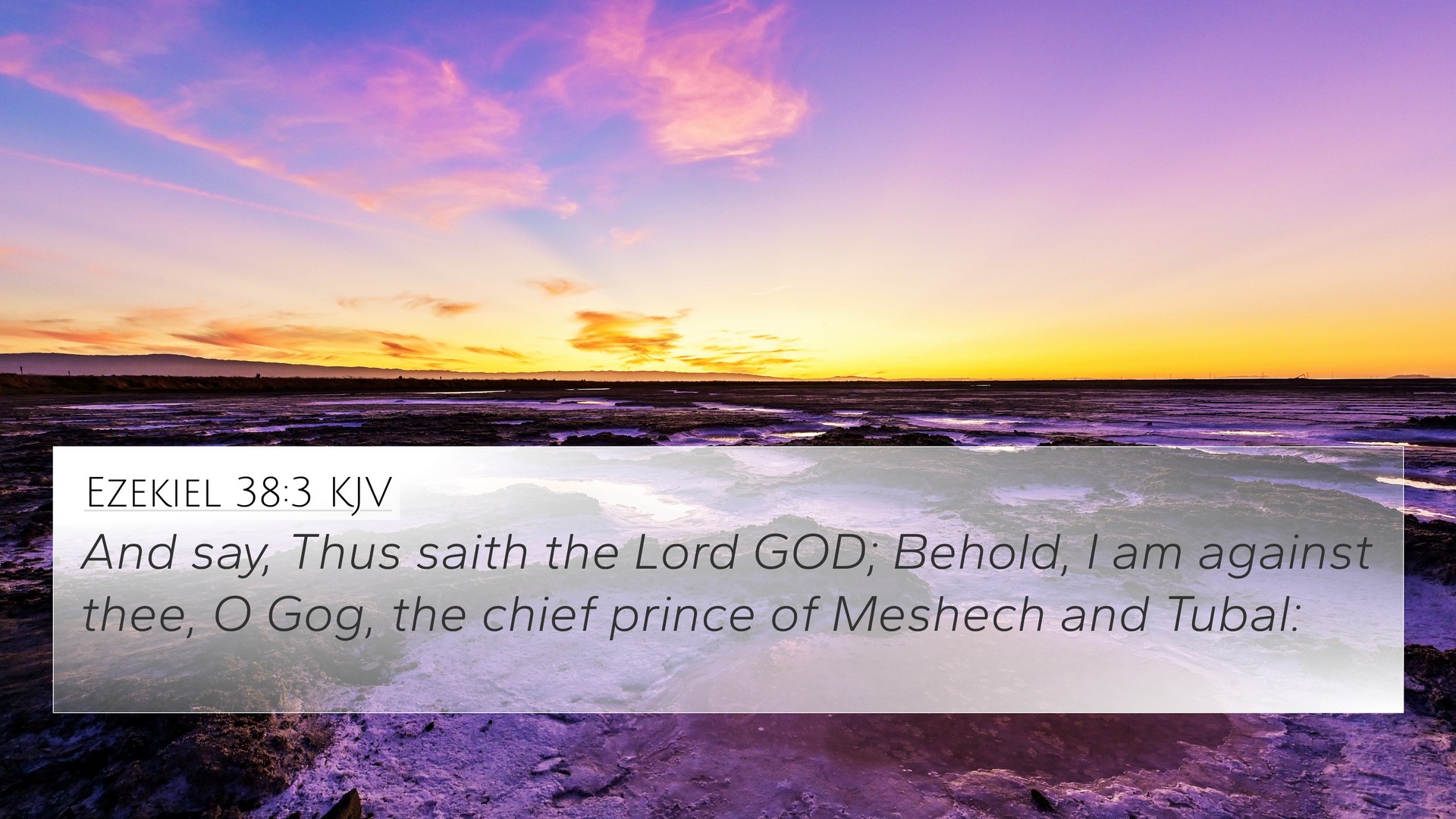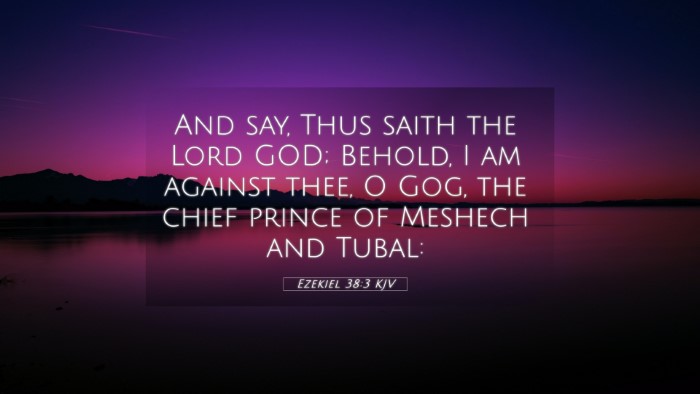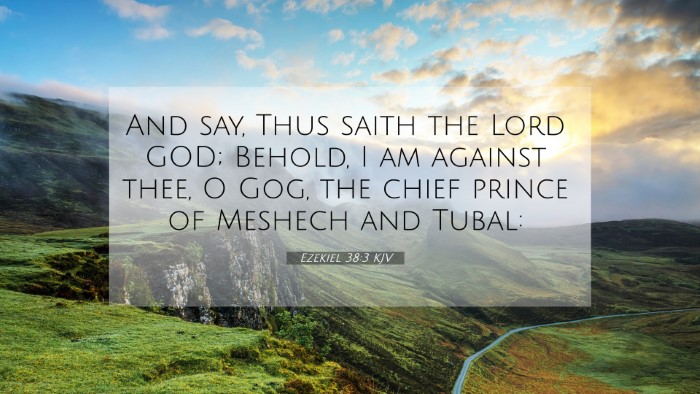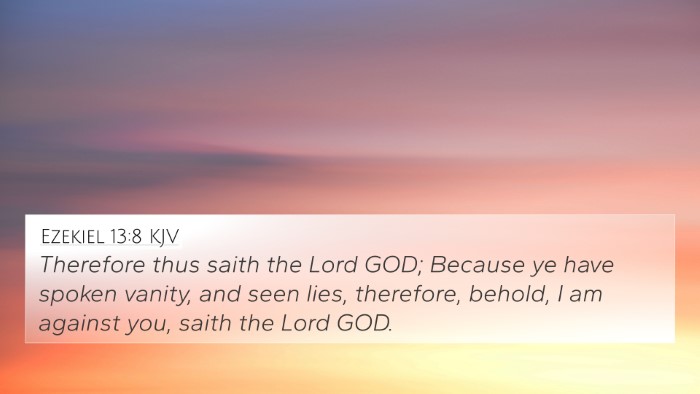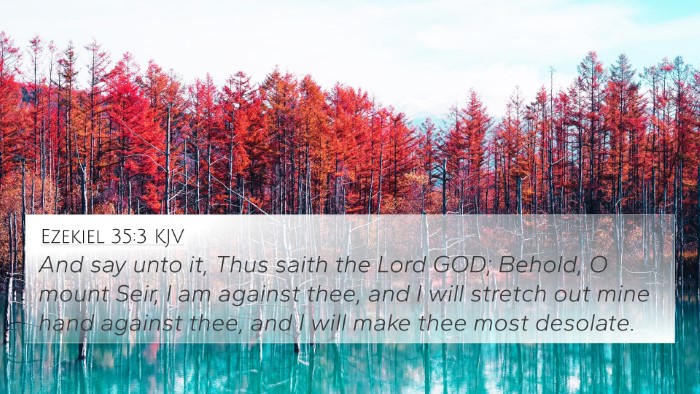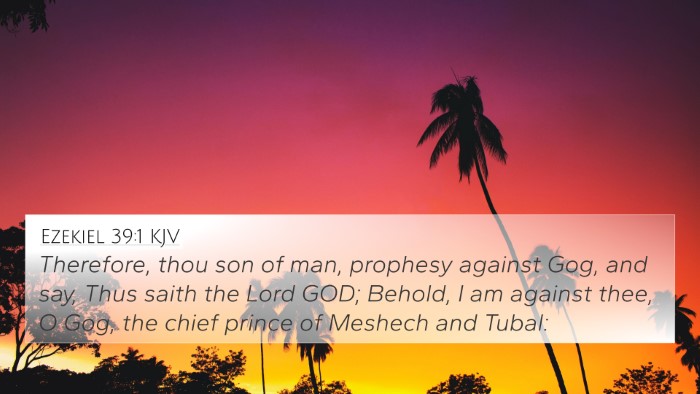Ezekiel 38:3 - Meaning and Interpretation
Ezekiel 38:3 states: "And say, Thus says the Lord God; Behold, I am against thee, O Gog, the chief prince of Meshech and Tubal." This verse serves as a prophetic pronouncement against Gog, representing the forces of evil and opposition to God’s people. Understanding this text requires a careful examination of its historical context and implications within the broader narrative of Scripture.
Contextual Background: Ezekiel’s prophecies, particularly in chapters 38 and 39, address a future invasion of Israel by Gog, who symbolizes hostile nations. This invasion reflects both geopolitical realities and spiritual truths regarding the ultimate conflict between good and evil.
Commentary Insights
-
Matthew Henry: He emphasizes that God’s declaration against Gog illustrates divine sovereignty. The confrontation with Gog serves to show that God is in control of the nations and will judge those who oppose His people. This not only speaks to Israel's immediate context but also to the ultimate victory of God against evil.
-
Albert Barnes: Barnes elaborates on the identity of Gog and the significance of Meshech and Tubal, suggesting these represent areas associated with aggressive and barbaric powers. The prophetic implications include a future conflict where God intervenes, reinforcing the theme of His protection over Israel.
-
Adam Clarke: Clarke connects this verse to the broader theological implications of God’s judgments, pointing out that the reference to "chief prince" suggests a unique role that Gog plays in opposing God’s purpose. He emphasizes the metaphoric aspect of Gog representing evil forces that arise against truth and righteousness in various ages.
Key Themes in Ezekiel 38:3
The verse encompasses several critical themes that resonate throughout Scripture:
- Divine Judgment: The phrase "I am against thee" communicates God's direct opposition to those who oppose His will. This theme is echoed in many scriptures where God judges nations and individuals, such as Isaiah 13:19-22 and Jeremiah 50:31-32.
- Protection of Israel: God’s commitment to Israel is emphasized, illustrating that no power can stand against Him. This theme connects to Psalms 125:2 and Zechariah 2:8.
- Spiritual Warfare: The conflict with Gog illustrates the ongoing spiritual battle faced by believers against dark forces, as underscored in Ephesians 6:12.
Cross-References
Understanding Ezekiel 38:3 is enriched through various cross-references that provide additional layers of meaning:
- Revelation 20:7-10 - The ultimate judgment of Gog and Magog is seen in the eschatological context.
- Joel 3:2 - The gathering of nations for judgment parallels the themes present in Ezekiel.
- Zechariah 14:2 - The prophecy of Jerusalem’s siege complements the narrative of opposition.
- Isaiah 2:2-4 - A vision of God’s kingdom prevailing over nations offers hope amid conflict.
- Daniel 11:40 - The conflicts involving the king of the north resonate with Ezekiel’s narrative.
- Romans 8:31 - The assurance that God is for His people reinforces the message of divine protection.
- Matthew 24:6-8 - Signs of the end times echo the themes of conflict and divine oversight.
Thematic Connections
The thematic connections within Ezekiel 38:3 highlight the relevance of biblical cross-referencing. It draws attention to how various Scripture passages interact with one another.
Tools for Bible Cross-Referencing: Utilizing a bible concordance or a bible cross-reference guide can enhance one’s understanding of these connections. By understanding the layers of meaning found in different texts, believers can deepen their study through cross-referencing Bible study methods, exploring the identifying connections between Old and New Testament.
Conclusion: Ezekiel 38:3 is a powerful reminder of God's sovereignty and the ultimate victory over evil forces. Engage with this verse and its related passages to fully appreciate the richness of its message. As we draw connections between texts, we also uncover the unified narrative thread running through the Bible that emphasizes God's unyielding protection and ultimate triumph.
